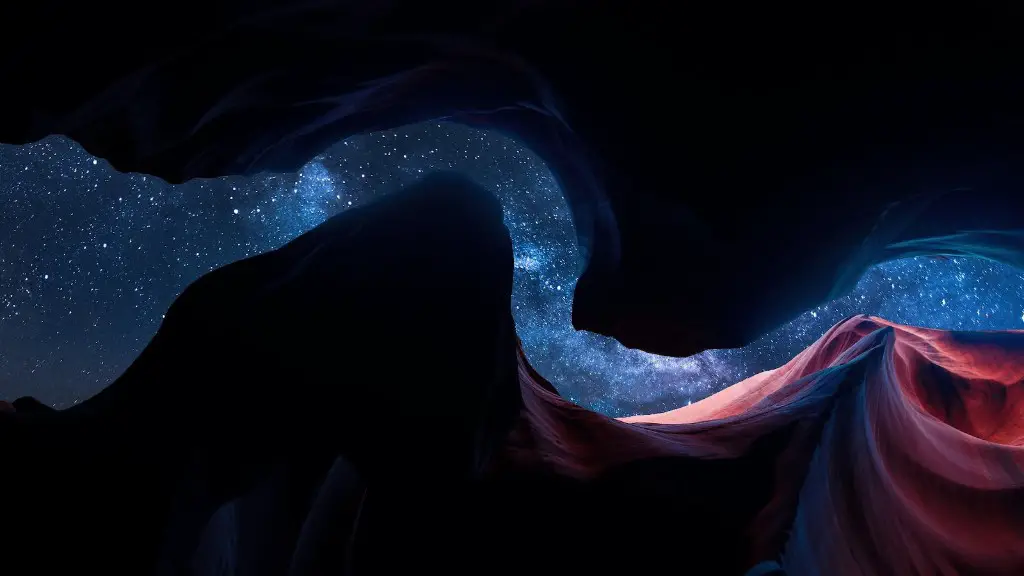Dreams have been a topic of discussion and fascination throughout history. Some believe that dreams are a glimpse into another reality, or parallel universe. While there is no scientific evidence to support this claim, it is still a popular belief. Some argue that dreams could be a way for our subconscious to work through problems or sort through memories. Others believe that dreams are just a product of our imagination. Regardless of what dreams may be, they continue to be a mystery to us.
There is no scientific consensus on whether dreams are parallel universes. Some scientists believe that they are, while others believe that they are not.
What is considered a parallel universe?
A parallel universe is a hypothetical self-contained plane of existence, co-existing with one’s own. The sum of all potential parallel universes that constitute reality is often called a “multiverse”. Parallel universes have been a popular concept in fiction for many years, and have been used as a plot device in a variety of works.
The realm of sleep and dreams has long been associated with strangeness: omens or symbols, unconscious impulses and fears. But this sometimes disturbing world of inner turmoil, fears and desires is grounded in our day-to-day experience, sleep researchers say.
Sleep and dreaming are normal, natural processes that allow us to process information and emotions from the day. Dreams can be a way for our mind to process difficult or stressful events, or to work through unfinished business.
While some dreams may be disturbing, researchers say that they are usually not prophetic or indicative of hidden desires or impulses. Rather, they are often a reflection of our current concerns or preoccupations.
If you find yourself having recurrent, disturbing dreams, it may be helpful to talk to a therapist or counselor who can help you explore the possible meanings and help you find ways to address the issues in your life.
How many parallel universes are there
There are an infinite number of parallel universes, each one containing all the possible outcomes of every event that could ever happen. According to the Many Worlds Interpretation of quantum mechanics, every time a choice is made, the universe splits into multiple universes, each one following a different outcome.
There is no way to know for sure if this interpretation is correct, but it is just as valid as any other. There are no experiments or observations that could rule it out. Even if it turns out to be wrong, it is an interesting way of thinking about the world.
Precognitive phenomena are events that seem to be foretold by a dream or vision. These events can only be identified as precognitive after they have taken place. Precognitive dreams are the most widely reported occurrences of precognition. When a precognitive event occurs after a dream, it is said to have “broken the dream”.
Does the mirror world exist?
A mirror world is a hypothetical duplicate of our own universe, exactly the same in every way except for one key detail: all the particles in a mirror world have the opposite charge of their counterparts in our world. This hypothetical duplicate universe has been used by physicists to solve important problems in particle physics.
The multiverse is a vast ocean of universes that contains our universe. The concept of the multiverse is difficult to comprehend, but it is an important part of physics. The cosmological multiverse is the easiest type of multiverse to understand. It is a collection of universes that are all expanding at different rates.
Can people’s dreams sync?
There is some debate on whether shared dreams are real or not. Those who believe that they are genuine say that they can happen spontaneously or be planned. They are most common between people who are emotionally close, such as couples, siblings, parent-child, or best friends. It is also said that twins may be especially prone to shared dreams.
At this time, there is little scientific evidence suggesting that dreams can predict the future. However, some research suggests that certain types of dreams may help predict the onset of illness or mental decline in the dream. If you are concerned about your dreams, please consult with a mental health professional.
What is it called when you confuse dreams with reality
Oneirophrenia is a term used to describe a state where a person becomes confused about the distinction between reality and dream as if he or she were living in a dream state.1 The Oxford Dictionary of Psychology defines oneirophrenia as a ‘dreamlike state of consciousness’.2 Oneirophrenia can be caused by a variety of factors, including sleep deprivation, psychological stress, psychedelic drugs, and certain medical conditions.3
If you are experiencing oneirophrenia, it is important to seek professional help as soon as possible as the condition can interfere with your daily life and cause you to act in ways that are out of character.4
In our everyday lives, we inhabit a space of three dimensions – a vast ‘cupboard’ with height, width, and depth. However, less obviously, we can also consider time as an additional, fourth dimension. This was famously revealed by Einstein. Therefore, in total, we actually inhabit a space of four dimensions.
Can parallel universes meet?
There’s an interesting thought experiment called the “many worlds interpretation” that posits the existence of an infinite number of universes, each with its own version of you. In some of these universes, you might be living a life that’s very similar to the one you’re living now. In others, you might be living a life that’s wildly different.
The key thing to remember is that these alternate universes are completely separate and unable to intersect, so while there may be uncountable versions of you living a life that’s slightly — or wildly — different from your life in this world, you’d never know it.
There is much speculation about whether alternate universes exist, and if so, whether we could travel to them. While there is no definitive proof, this is an intriguing topic that is likely to continue to be explored in both science fiction and real-life science.
Can I live a life in dream
There is no single recipe for success when it comes to achieving your dream life, but there are some key ingredients that will help you along the way. First and foremost, you need to be committed to your goals and willing to put in the hard work required to make them a reality. Additionally, it is important to be true to yourself and stay focused on your dreams, rather than letting negativity or past failures derail your progress. Finally, remember that taking small steps towards your goals is often the best way to achieve them; don’t be discouraged if you don’t reach your destination overnight. With patience and perseverance, you can achieve anything you set your mind to.
A prophecy is a prediction or an insight into the future. It is often associated with supernatural powers or knowledge.
What percentage of dreams come true?
The article is talking about how a small percentage of people are able to turn their dreams into reality. It cites various statistics from different sources to back up this claim. These statistics show that the vast majority of people never achieve their dreams, which is a sobering thought. However, it is possible to achieve your dreams if you are willing to work hard and never give up.
There is no scientific evidence to support the existence of parallel universes and the scientists at the laboratory in Tennessee are not trying to open a portal into another dimension. The claim is false.
Final Words
There is scientific evidence that suggests that dreams may be parallel universes. A study published in the journal Nature found that when people dream, their brains create new universes that are separate from the real world. This suggests that the mind is capable of creating alternative realities.
There is no clear consensus on what dreams are, but there are many different theories. Some believe that dreams are a way for our subconscious to process information and sort through memories. Others believe that dreams are related to our emotions and can help us work through personal issues. Some people even believe that dreams are parallel universes that we can visit while we sleep. There is no clear evidence to support any of these theories, but they all offer interesting explanations for the phenomenon of dreaming.





